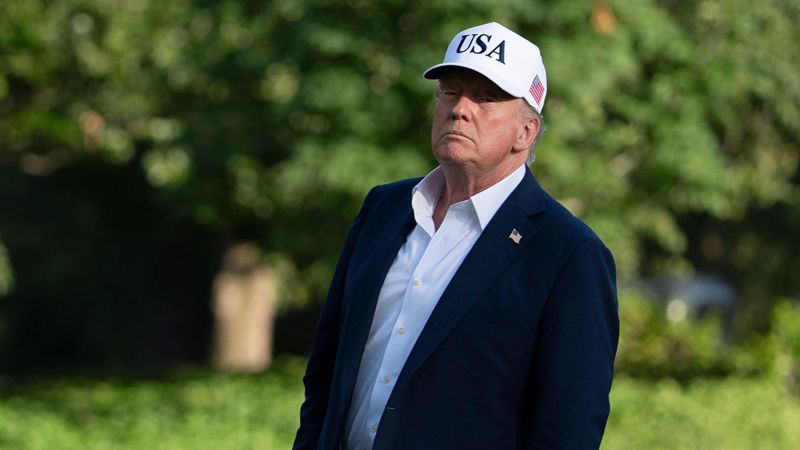In recent discussions surrounding the devastating floods in Texas, White House Press Secretary Karoline Leavitt firmly rejected attempts to ascribe blame to the current government. During a media briefing, Leavitt conveyed condemnation towards Democratic officials whom she accused of politicizing the tragedy. She stated, “Many Democrat elected officials are trying to turn this into a political game; it is not,” referring specifically to insinuations that the floods could be traced back to former President Donald Trump’s budget cuts to the National Weather Service. Leavitt emphasized the insensitivity of such comments, asserting, “I just do think those comments are depraved and despicable, especially when so many Americans are mourning the loss of their children.”
Interestingly, less than a day before Leavitt’s comments, Donald Trump himself had diverted blame towards the Biden administration. Trump indicated that the severe flooding was part of what he termed the “Biden setup.” While he attempted to clarify that he wasn’t laying direct blame on Biden, he nonetheless appeared to shift the focus of responsibility onto his predecessor. This reflexive inclination to blame prior administrations in the wake of disasters has become a hallmark of Trump’s political persona, as he often seeks to redirect accountability rather than accept it.
This tendency has been observed in various tragic incidents beyond the flooding in Texas. For instance, following a deadly airplane crash in the Potomac River that resulted in the death of 67 individuals, Trump attributed blame to the Biden administration along with diversity, equity, and inclusion initiatives. These comments were made despite the absence of any supporting evidence. Furthermore, even as investigations were still ongoing, he remarked on the failures of the current administration in the realm of air traffic control, asserting that “Biden didn’t do a thing for four years” after a series of technical malfunctions led to traumatic experiences for air traffic controllers.
In the wake of an antisemitic firebombing incident in Boulder, Colorado, which resulted in injuries and a subsequent fatality, Trump once again pointed fingers at Biden’s immigration policies, declaring, “Biden’s ridiculous Open Border Policy.” Such claims were echoed by other administration officials like White House adviser Stephen Miller, who described the suspect as an “illegal alien.” However, the reality of the suspect’s entry into the U.S. was more complicated, involving legal asylum procedures initiated during Trump’s earlier presidency.
Trump has also utilized this blame tactic in foreign affairs, reflecting on the Gaza ceasefire breakdown. Following the collapse of negotiations, he was quick to accuse Biden rather than Hamas or Israel, expressing that the fault lay with Biden for enabling Iran’s resurgence. Echoing a similar sentiment, he has frequently labeled the Russia-Ukraine conflict as “Biden’s war,” stating, “This is Biden. This isn’t me.”
Economically, Trump has often linked adverse market conditions directly to Biden, especially when addressing the fluctuating stock market in response to his tariffs and overall economic policy. In a recent statement, he dismissed responsibility for economic downturns by insisting, “We came in on January 20th, so this is Biden’s economy.” Despite prior claims attributing stock market surges to the “Trump effect,” he quickly pivoted to blame Biden when conditions turned unfavorable.
This pattern of attributing responsibility to Biden extends even to everyday commodities, such as the price of eggs. Trump controversially declared that exponential price increases for eggs were a direct result of Biden’s policies, positing that when he assumed office, egg prices were somehow the fault of his successor—easy scapegoating ignored the reality of external factors like avian flu outbreaks.
In a bizarre instance related to his own administration’s controversies, Trump suggested Biden bore some of the blame for sensitive military discussions held on unapproved communication platforms. He lamented decisions not taken and asserted that Biden should have proactively addressed conflicts abroad, illustrating his unique approach to spinning blame even amidst serious investigations.
This consistent strategy of deflecting blame to Biden, as demonstrated by a range of incidents, has become emblematic of Trump’s political tactics; he strategically navigates narratives to shield his legacy while keenly focusing on his successor as the source of ongoing troubles. As the situation unfolds surrounding various crises, Trump’s pattern of blaming his predecessor offers a glimpse into the complex dynamics of political accountability in the modern landscape, further complicating public discourse amidst significant national challenges.











